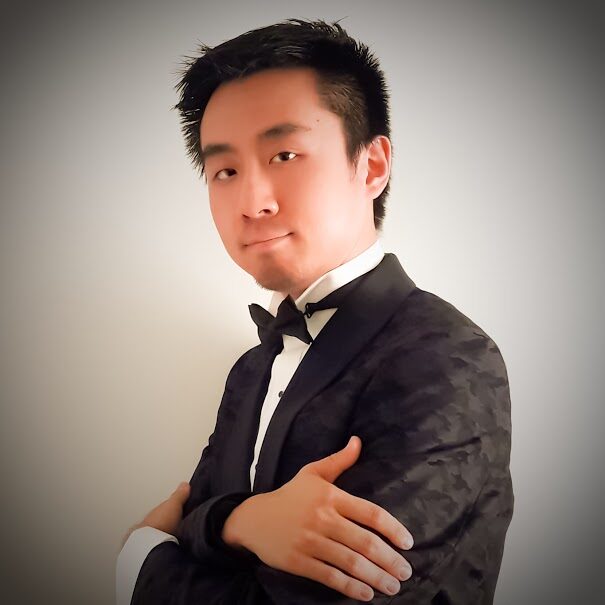
Dr. Xiangyu Zhao, DMA
Classical Pianist | Composer | Scholar
Dr. Xiangyu Zhao is a pianist, composer, and scholar recognized for his versatility as a performer, educator, and advocate for new music. Born in China, he began piano studies at the age of four and later earned his Bachelor of Music at the University of Northern Colorado under Dr. Lei Weng. He completed the Doctor of Musical Arts in Piano Performance at the UMKC Conservatory with Dr. Robert Weirich.
Zhao has distinguished himself in major competitions, including the Steinway Piano Concerto Competition, MTNA Young Artist competitions, and the Artist Presentation Society Competition. His performances have included appearances at Helzberg Hall in the Kauffman Center for the Performing Arts and Carnegie Hall (June 2025).
As a composer, Zhao blends Western classical traditions with American blues and Chinese musical elements. His works range from solo piano to chamber music and have been performed internationally; his piece Wild Blues was featured on Kansas Public Radio (November 2024).
In scholarship, Zhao co‑authored a complete critical edition of Stravinsky’s Four Piano Études, Op. 7 and has published research on Liszt’s Transcendental Études. He regularly presents at regional and national conferences.
Committed to education and community, Zhao serves on the faculty of the Music Academy of Kansas City and as pianist for the Kansas City Ballet. Since June 2025, he has served as Chair of the Junior Concerto Competition for the Kansas City Music Teachers Association (KCMTA). He also holds leadership roles with Mu Phi Epsilon (Alpha Kappa Alumni Chapter), serving as Collegiate Advisor and Recording Secretary.
Teaching Philosophy
Teaching is both an art and a science. As a piano instructor, I aim not only to impart technical skills but to inspire creativity, critical thinking, and confidence in each student’s unique voice.
I believe in guiding rather than dictating: asking questions, encouraging problem-solving, and helping students develop independence as musicians. A respectful and supportive environment is essential, and I emphasize clear communication, patience, and high expectations so that students feel both encouraged and challenged.
Every student learns differently. I adapt my approach to their needs, strengths, and goals, while giving them opportunities to explore music they are passionate about. I also encourage interdisciplinary curiosity and composition, helping students connect music with broader human experience.
Ultimately, I hope my students leave with not only technical proficiency but also a lasting love of music and confidence in their own artistic journey.
